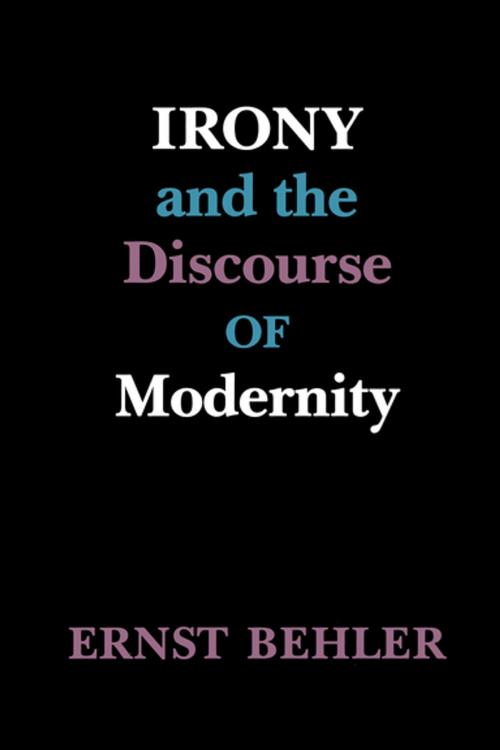Irony and the Discourse of Modernity
Fiction & Literature, Literary Theory & Criticism, European, Nonfiction, Social & Cultural Studies, Social Science, Anthropology| Author: | Ernst Behler | ISBN: | 9780295801537 |
| Publisher: | University of Washington Press | Publication: | May 1, 2017 |
| Imprint: | University of Washington Press | Language: | English |
| Author: | Ernst Behler |
| ISBN: | 9780295801537 |
| Publisher: | University of Washington Press |
| Publication: | May 1, 2017 |
| Imprint: | University of Washington Press |
| Language: | English |
Behler discusses the current state of thought on modernity and postmodernity, detailing the intellectual problems to be faced and examining the positions of such central figures in the debate as Lyotard, Habermas, Rorty, and Derrida. He finds that beyond the �limits of communication,� further discussion must be carried out through irony.
The historical rise of the concept of modernity is examined through discussions of the querelle des anciens et des modernes as a break with classical tradition, and on the theoretical writings of de Stael, the English romantics, and the great German romantics Schlegel, Hegel, and Nietzsche. The growth of the concept of irony from a formal rhetorical term to a mode of indirectness that comes to characterize thought and discourse generally is then examined from Plato and Socrates to Nietzsche, who avoided the term �irony� but used it in his cetnral concept of the mask.
Behler discusses the current state of thought on modernity and postmodernity, detailing the intellectual problems to be faced and examining the positions of such central figures in the debate as Lyotard, Habermas, Rorty, and Derrida. He finds that beyond the �limits of communication,� further discussion must be carried out through irony.
The historical rise of the concept of modernity is examined through discussions of the querelle des anciens et des modernes as a break with classical tradition, and on the theoretical writings of de Stael, the English romantics, and the great German romantics Schlegel, Hegel, and Nietzsche. The growth of the concept of irony from a formal rhetorical term to a mode of indirectness that comes to characterize thought and discourse generally is then examined from Plato and Socrates to Nietzsche, who avoided the term �irony� but used it in his cetnral concept of the mask.















